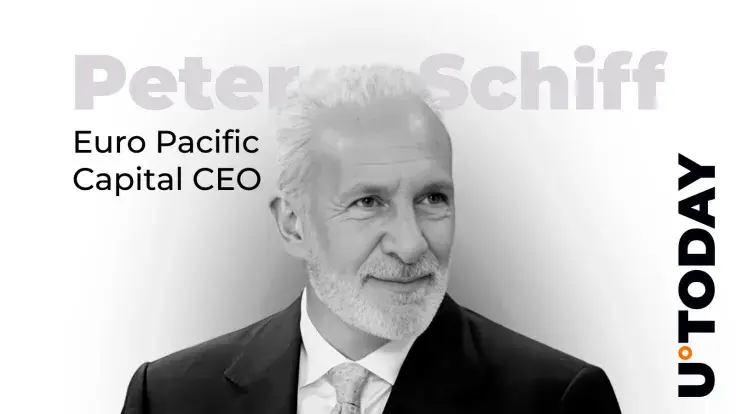
Echelon Wealth Partners cofounder Peter Schiff has taken aim at Fundstrat's Tom Lee, one of Wall Street's most famous permabulls, over his excessively optimistic Bitcoin (BTC) price prediction.
Lee, who has predicted that the price of the leading cryptocurrency could potentially hit the $200,000 level, has blamed the most recent underperformance of the leading cryptocurrency on the Federal Reserve's reluctance to cut interest rates.
However, Schiff has noted that gold actually managed to surge by 10% over the last two months, recently reaching yet another all-time high of $3,620.
As reported by U.Today, the famous financial commentator previously claimed that those who picked Bitcoin actually ended up betting on the wrong horse after the price of gold hit a new peak due to the rising prospects of the Fed cutting rates without fully taming inflation.
Sinking below $100,000?
Schiff now argues that Bitcoin is actually more likely to sink below $100,000 than rally above $200,000, warning that Bitcoin's underperformance against gold is actually a bad omen for the flagship cryptocurrency.
"Markets are forward-looking. That's why gold is up 10% in advance of coming rate cuts. Bitcoin's failure to rally with gold based on the same prospects should cause him concern," Schiff said.
Polymarket bettors are also bearish on Lee's bet. At press time, there is currently just an 8% chance of Bitcoin hitting $200,000 this year. Notably, Bitcoin currently has the same probability of collapsing below the $70,000 level by the end of 2025.
Underwhelming four-year cycle?
Schiff recently stated that Bitcoin's four-year returns will look underwhelming once "more air" comes out of the Bitcoin bubble. He has noted that the cryptocurrency is actually down 16% against gold over the past four years despite logging relatively impressive returns against the U.S. dollar.
There is also a debate about whether four-year cycles, which are believed to be tied to Bitcoin's halving mechanism, are still a thing. Some analysts argue that they are effectively over.
Lee recently opined that the influx of institutional investors has brought "counter-cyclical characteristics" to the market.

 Vladislav Sopov
Vladislav Sopov Dan Burgin
Dan Burgin